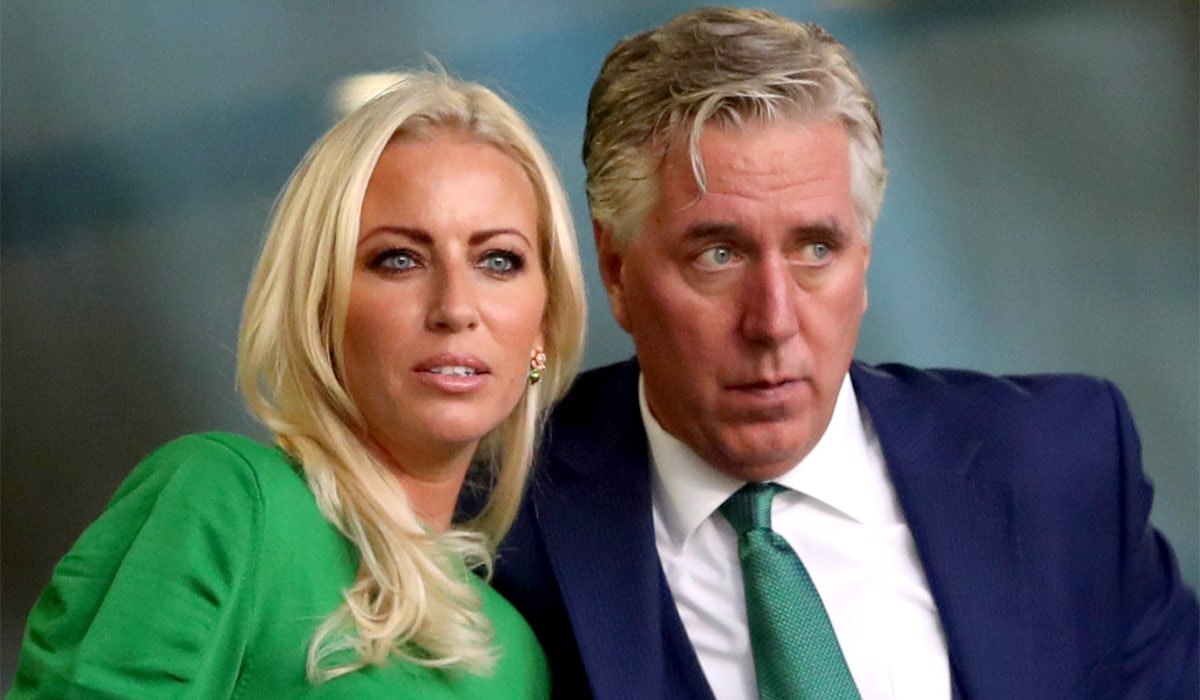The bells of Dublin’s churches rang out on Wednesday morning as the news came through that Martin O’Neill’s reign as Ireland manager came to a stuttering end. The Football Association of Ireland (FAI) announced later that day that O’Neill and Keane were parting ways with the team “by mutual agreement”; in other words, the pair were facing the sack, but the association was gracious enough to spare what was left of their dignity. Poor attendance at recent games is believed to be the reason why Chief Executive John Delaney dismissed the management team.
In a statement released on Wednesday, Delaney thanked O’Neill and Keane for their service to the national team: “There have been many highlights during Martin’s reign – none more so than Euro 2016 in France, which will live long in the memory of all Irish supporters. Martin did a great job guiding the team out of a difficult qualifying group – where we beat World Champions Germany along the way – to reach Euro 2016 and advance to the last-16 following a historic victory over Italy in Lille.” Even Delaney could not find anything within the last two years that was worth singing about.
Delaney has recently come under pressure from both supporters and the media regarding the current state of the Ireland team. The side finished 2018 without a single competitive win. Off the pitch, the Declan Rice saga and the delay regarding O’Neill’s contract only frustrated people further. So, as is often the case when a chief executive or club owner’s capabilities are questioned, the management team pays the forfeit of the peace. However, it would be naive to assume that the FAI’s problems are only recent; the sporting body has been in a serious state of flux for years. Declan Lynch perfectly captured the chaotic organisation: “[They’re] the dysfunctional football association that other dysfunctional football associations regard as the Galacticos”.
In 2015, Ewan McKenna from the Sunday Business Post wrote a piece revealing some of the FAI’s underhanded activities concerning their relationship with fans, particularly You Boys In Green, the Ireland supporters’ group. McKenna describes an incident in October 2008 regarding a testimonial dinner for former international Dave Langan: “A drinks reception kicked off the night, with those present suggesting a conservative estimate for the booze was €10,000. But only later did it emerge that the FAI deducted this from Langan’s cut.” The association agreed “to pay [Langan] the rest in tranches, none [of which] were on time…It was only when Langan himself threatened to go to the media that Delaney intervened.”
The FAI’s ignorance is not limited to its treatment of fans, but also the interests of other football organisations in Ireland. Earlier this year, the Professional Footballers’ Association of Ireland (PFAI) criticised the FAI for not consulting them before announcing proposals for a €300,000 fund to assist League of Ireland clubs with wage problems – a deal for which the trade union would contribute half of the capital. The PFAI said: “The idea that we would match the contribution of the FAI, an organisation with a multi-million-euro turnover, when our organisation has a tiny fraction of its size and turnover, is mind-boggling.” This move was a manipulative tactic from the association, and such Machiavellian policies are indicative of a corrupt organisation with little to no moral values.
At the heart of the shambolic association is Delaney – a man who seems prone to hypocrisy. As McKenna points out: “Ever since Sepp Blatter resigned, he’d been telling everyone that he was the renegade that refused to bow.” Yet it was revealed in June 2015 that Delaney had accepted a €5m settlement from FIFA in the wake of the infamous World Cup playoff against France. At that moment, Delaney’s lack of integrity became all too clear. To make matters worse, the FAI chief earns a salary of €360,000 a year, 20% higher than the proposed fund for player wages. Delaney’s salary has regularly provoked controversy – in 2010, he earned €430,000 a year, which was double the prize money awarded to League of Ireland champions at the time.
In many ways, Delaney is the perfect figurehead for the feckless FAI. He constantly stalls on effective institutional changes which would help rebuild the organisation. Time after time, both Delaney and the FAI have totally neglected their responsibility to fans and players alike in favour of personal gain. Yet both have an incredible talent for worming their way out of intense situations.
A month ago, Emmet Malone noted that for Delaney to dismiss O’Neill and Keane at this stage would demonstrate a lack of faith in his own judgement: “Having effectively doubled the management team’s salaries to keep them around just a few months ago, changing horses right now would be both costly and embarrassing for the chief executive.” Delaney is no stranger to humiliation, but when his own abilities are called into question, he deftly deflects the attention away from himself through some populist measures.
It is very convenient, therefore, that O’Neill and Keane’s departure has come along so soon after revelations on Monday night that Danish police had confiscated banners from supporters with slogans such as “#DelaneyOut” ahead of Ireland’s clash with Denmark in Aarhus. The episode has seen a dramatic shift in attention from Monday’s incidents, as many wonder who will take over as Ireland manager. With that in mind, a more cynical journalist could view Delaney’s action as his latest attempt to deflect the scrutiny away from him. But could anyone possibly be that spineless? Yes.






